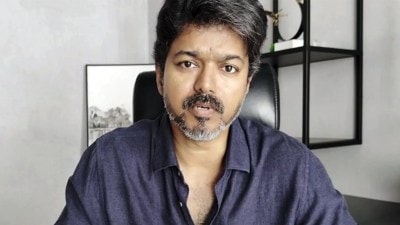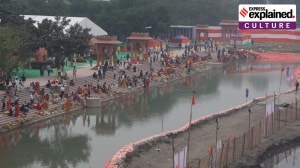India asks ASEAN to jointly combat global terrorism
SINGAPORE, JUNE 2: India today asked ASEAN countries to jointly combat the modern day scourge of international terrorism and its growing l...

SINGAPORE, JUNE 2: India today asked ASEAN countries to jointly combat the modern day scourge of international terrorism and its growing linkages with drug trafficking and arms proliferation.
"There is a need for us to address this volatile mix, which is and will remain a threat to regional security and to the security of individual states therein," External Affairs Minister Jaswant Singh said.
"Just as Asia is home to the world’s greatest energy resources, our region is also, regretably, home to many terrorist groups and movements that recognise no frontiers," he said addressing the Institute of Defence and Strategic Studies on `India and ASEAN: Security Paradigm AD-2000′.
Singh, who is here on a three-day official visit, held wide-ranging discussions with Singapore Prime Minister Goh Chik Tong, Deputy premier L H Loong and senior Minister Lee Kuan Yew, on bilateral, regional and international issues of mutual concern.
The evolving situation in Fiji figured during the parleys with Singh who underscored the need for restoration of the constitutionally-elected government in that country.
In his address, the Minister emphasised that another area of possible cooperation was tackling non-traditional threats to security such as cyber crimes.
Singh termed as "misplaced" the perception in certain quarters that there had been a radical shift in the Indian security paradigm with the nuclear tests.
"We believe that the overt exercise of this option by India has helped to remove potentially dangerous strategic ambiguities in the region. It has enhanced the strategic space of the country and granted to it the needed autonomy," he said.
Asserting that India had no intention of engaging in any arms race, he said New Delhi was mindful of its increased responsibilities and had also sought to increase the scope of confidence-building measures with its neighgbours.
India, he said, fully respected the status of the NuclearFree Zone in South East Asia and was ready to convert this commitment into a legal obligation.
Singh welcomed discussions of an Asian Monetary Fund (AMF) but said the region was not ready for a common currency unit. "It’s an idea (AMF) that must be encouraged. We must look at it closely," he said after delivering his address.
Given the diversity among the Asian countries, it would not be easy to move towards a common currency, he contended.
Even though the economies within the European Union are more closely integrated than their Asian counterparts, the euro has yet to be fully accepted, he added, citing Britain’s refusal to join as an example.



- 01
- 02
- 03
- 04
- 05




























